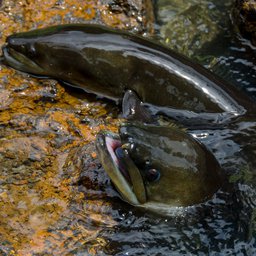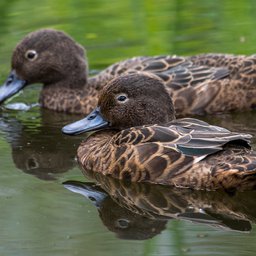
In New Zealand, more than 90 % of freshwater wetlands are gone - principally into
agriculture. Just five large wetlands remain in the Auckland region and two are in West
Auckland – at Whatipu and Te Henga.
To mark World Wetlands Day, around 60 volunteers and guests of the Pest Free Waitakere
Ranges Alliance gathered on a hot February afternoon at Matuku Link, a former farm that is
being restored to wetland, and is part of the larger Te Henga wetland.
Volunteers fundraised and bought the 37-hectare farm five years ago and it now hosts a
volunteer base, a wetland education centre and a plant nursery. Thousands of trees, sedges
and rushes have been planted, and an accessible boardwalk is partially built, and when
complete will allow access for wheelchairs and pushchairs. The Waitakere river runs
through Matuku and at times rises four metres above its normal, gentle meander through
the wetland.
In the middle of Cyclone Dovi’s landfall, the PFWRA group struck an unexpected lull – the
afternoon was hot, and still. Maybe it was the eye of the storm and Matuku Link guides took
groups around the wetland in perfect conditions.
Ponds have been created with interconnecting boardwalks and trails, and raupō (also called
bulrush) is marching along the margins, creating a home to rare wetland species such as the
wetland’s namesake matuku (Australasian bittern), pūweto (spotless crake), and the rare
pāteke (brown teal). Freshwater fish species and native bats (we were told) forage along the
river forest edge. Plantings include the return of pukatea, kahikatea and swamp maire, all
native trees that are well-adapted to growing in wetlands. Thousands of trees, sedges, and
reeds have been planted by the volunteers to restore the alluvial flats to a range of wetland
habitats.
Plants are seeded and grown in the nursery– and the old barn has been transformed into a
sustainable Wetland Education Centre and volunteer meeting place.
The afternoon was an inspiring glimpse into the work of the Matuku Link Trust, a vital link in
the chain of wetland restoration. A public open day is planned when Covid regulations
permit.
Find out more about Matuku Link and even join the volunteers:
https://matukulink.org.nz/about-us/


